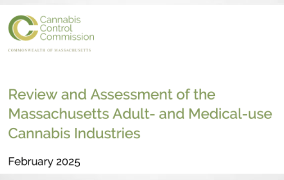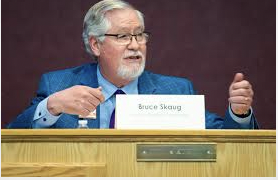In recent weeks, we saw press reports on a recommendation from the Attorney General to loosen federal restrictions on marijuana – reclassifying it by moving it off Schedule I (an illegal controlled substance with no medical uses and a high degree of potential abuse) to Schedule III, where many other drugs, including some requiring a prescription, are listed. No official announcement about any reclassification action has been released, and even when it is, there are apparently other administrative steps that need to occur before any re-scheduling is final. So, there are many regulatory hurdles still to come.
While a rescheduling to Schedule III may have an impact on research and marijuana’s medical uses, broadcasters need to continue to take a very cautious approach to marijuana advertising while the details of any possible change are worked out and likely even after any re-scheduling as, even as a Schedule III drug, advertising may still be restricted under federal law.
While many states have, as a matter of state law, legalized medical and even recreational marijuana use, there is still concern for broadcasters, as federal licensees, in accepting advertising for dispensaries and other marijuana sales, as we have noted many times before (see, for example, our articles here, here, and here). That is because the sale and distribution of marijuana still remains a felony under federal law. Under 21 USC § 843 (b) and (c), to use communications facilities, including radio and the internet, to facilitate any sale of any Federally controlled substance is a felony. The fear continues to be that, if the FCC is faced with a complaint about a broadcaster “facilitating” the sale of marijuana thought running advertising – an act illegal under federal law – the FCC might feel a need to take action against the broadcaster. A move to Schedule III does not automatically solve that issue.
While we don’t claim to be lawyers who are experts in FDA law, from our review, Schedule III drugs include many that require prescriptions to use – including anabolic steroids and barbiturates – not exactly the kind of drugs one usually sees advertised on TV. Schedule III drugs generally require FDA approval before marketing and are subject to restrictions as to how they are distributed. Warning labels may be required. Federal registration is required for those who dispense and manufacture these controlled substances, and users must be tracked as well unless the Attorney General decides that such user registration is not in the public interest. These kinds of restrictions are certainly not in line with the ways that marijuana is sold in states that have “legalized” it under their state laws.
This proposed regulation is different than that applied to alcohol, or even hemp-based CBD. Neither of these substances are on the schedules of controlled substances. CDB (which contains less than 0.3% THC, the psychoactive ingredient in marijuana) was removed as a result of the 2018 Farm Act (see our articles here and here). Even with its removal from the schedules of controlled substances, the FDA and FTC expressed concerns about advertising CDB’s use in a way that suggested that it had medicinal properties, the FDA does not authorize it for use as a food additive (see, for instance, our articles here and here). While the FDA promised to review those restrictions soon after the Farm Bill was enacted, it finally threw up its hands last year and decided that it could not determine that CDB was safe as an additive to foods and beverages, or that health claims could be made (other than for the limited drugs actually approved by the FDA derived from the cannabis plant, such as Epidiolex). The FDA instead asked that Congress provide instructions as to the rules that should be adopted in these areas (see FDA announcement here). Of course, Congress has not yet acted, so these concerns for CDB remain.
If CDB, which is not a scheduled controlled substance is still subject to these federal concerns 6 years after being de-scheduled, one can only imagine the concerns that will continue to be expressed about marijuana distribution and marketing even if it is moved to Schedule III. Plus, we have already begun to see pushback on whether this change is a wise move – and a change in administration could well mean an even stricter regulatory environment for marijuana in 2025 (see our article here on the greater restrictions under the first Trump administration).
Perhaps these concerns are overblown, and any rescheduling will be accompanied by a more hands-off regulatory environment. But all these considerations take time – so broadcasters should not just yet be counting on any immediate windfall from an influx of marijuana advertising dollars. Many details remain to be worked out, and many real issues remain before all issues are resolved. Caution remains necessary.


















